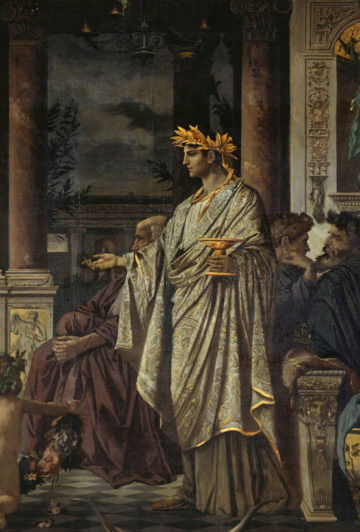
Literature & Politics
Paul Cantor, Jenna Silber Storey, and Benjamin Storey
Hertog Foundation | 2018
This two-week course explores the contributions of literature and rhetoric to the study of politics.
The first week, led by Professors Benjamin and Jenna Storey, will examine Plato’s meditation on eros in the Symposium and the natural connections between love, ambition, and fidelity to the polity. What is the relation of the love of beauty, sexual pleasure, and education to virtue? How does eros relate to moral excellence, and to moral failure? Is political ambition an extension or betrayal of the love for another human being? What exactly do we desire from erotic partnership—do lovers seek to complete themselves by merging with their “other halves,” or is love ultimately a longing for immortality that no other human being could satisfy? Peopled by political figures implicated in both the greatness and the collapse of Athens, the Symposium invites its readers to investigate the complexity of properly ordering our loves, an endeavor necessary both to fulfilling private lives and to a strong and decent public order.
The second week, led by Professor Paul Cantor, will study Shakespeare’s Roman plays to explore the interaction between man and city, each taken to its dramatic height. From classical antiquity down to the eighteenth century and such thinkers as Montesquieu and the American Founding Fathers, Rome has been one of the perennial themes of political theory. Shakespeare’s Roman plays (Coriolanus, Julius Caesar, and Antony & Cleopatra) are his contribution to the longstanding debate about Rome, and also occupy a very important place in his comprehensive understanding of the human condition. The plays are evidence of the crucial importance of politics in Shakespeare’s view of human nature, as well as of his sense of the limits of politics.
Anselm Feuerbach, Plato’s Symposium, 1874